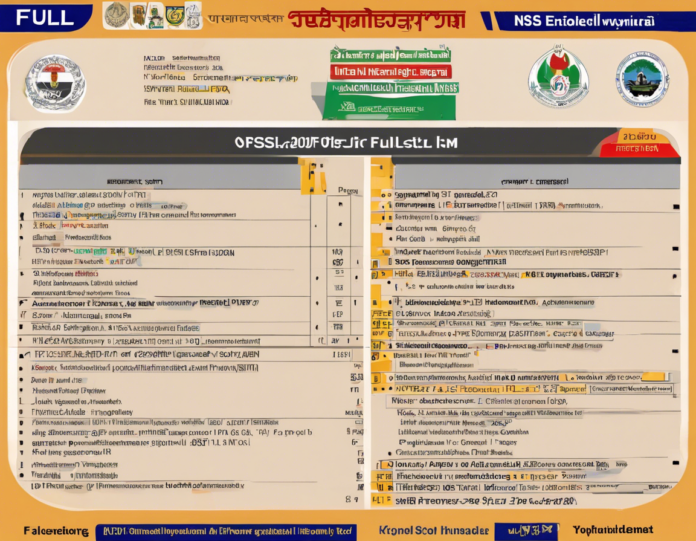For those unfamiliar with NSS full form, it stands for the National Service Scheme. This is a public service program in India aimed at developing social responsibility, values, and moral uprightness in students. The NSS was launched in 1969 and is managed by the Ministry of Youth Affairs and Sports. It is one of the largest volunteer programs in the world with over 3.2 million student volunteers from colleges and universities across the country.
The significance of NSS cannot be overstated. It plays a pivotal role in shaping the youth of India by instilling in them a sense of community service, empathy, and civic engagement. Through various activities such as blood donation camps, cleanliness drives, tree plantation, and awareness programs on social issues, NSS volunteers contribute to the betterment of society while honing their leadership and interpersonal skills. Here is a closer look at the various aspects of NSS and its impact:
Objectives of NSS:
The primary objectives of NSS include:
1. Personality Development: NSS aims at developing the overall personality of students through community service.
2. Community Engagement: It encourages students to engage with the community and address local issues.
3. Social Responsibility: NSS instills a sense of social responsibility and empathy in volunteers.
4. Skill Development: Volunteers learn leadership, communication, and teamwork skills through their participation in activities.
5. Nation-building: NSS contributes to nation-building by fostering a spirit of service among the youth.
Structure of NSS:
The NSS is implemented through universities and colleges, with each institution having its NSS unit. A faculty member serves as the NSS Program Coordinator and guides the activities of the unit. Students can enroll in NSS as volunteers and participate in various programs and projects.
Activities of NSS:
NSS conducts a wide range of activities, including:
– Blood donation camps: Encouraging voluntary blood donation to address shortages in blood banks.
– Cleanliness drives: Cleaning public spaces and creating awareness about sanitation.
– Tree plantation: Contributing to environmental conservation through tree planting initiatives.
– Health camps: Organizing health check-up camps and awareness programs on hygiene and sanitation.
– Literacy programs: Teaching underprivileged children and adults basic literacy skills.
– Awareness campaigns: Spreading awareness on issues like gender equality, HIV/AIDS, and drug abuse.
Impact of NSS:
The NSS has a profound impact on both volunteers and society. For volunteers, it provides a platform to contribute meaningfully to society, develop essential life skills, and cultivate a sense of purpose and belonging. NSS activities also foster a sense of social responsibility and empathy, shaping students into responsible citizens.
On a societal level, NSS initiatives bring about tangible changes in communities by addressing pressing issues such as healthcare, education, and environment conservation. The collective efforts of NSS volunteers have a ripple effect, inspiring others to join in the mission of social welfare and community development.
FAQs about NSS:
- Who can join NSS?
-
Any student enrolled in a university or college with an NSS unit can join as a volunteer.
-
Are NSS activities compulsory?
-
While NSS is voluntary, many educational institutions encourage students to participate in NSS activities for holistic development.
-
How can I start an NSS unit in my college?
-
You can reach out to the NSS Regional Centre or Program Coordinator in your university to inquire about starting an NSS unit.
-
Do NSS volunteers receive any recognition or rewards?
-
NSS volunteers often receive certificates and recognition for their service, which can enhance their resume and career prospects.
-
Can NSS activities be conducted online?
- Yes, especially in times of restricted physical gatherings, NSS activities like awareness campaigns, webinars, and online volunteering projects can be organized.
In conclusion, the National Service Scheme (NSS) plays a vital role in nurturing socially responsible and empathetic citizens among the youth of India. Through its various activities and initiatives, NSS creates a platform for students to engage with their communities, develop essential skills, and contribute to the betterment of society. Its significance extends far beyond college campuses, impacting individuals, communities, and the nation as a whole.

